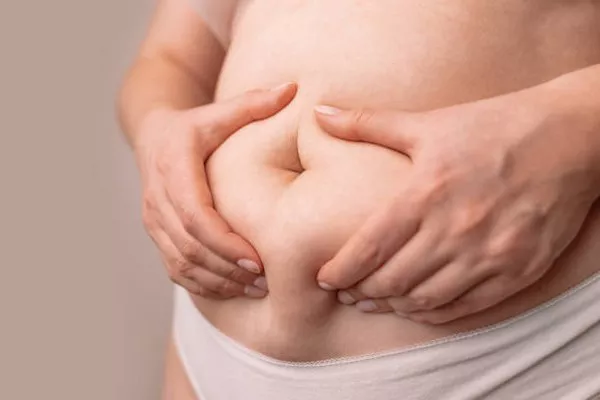Postpartum weight loss can be a significant concern for many new mothers. One of the questions often asked is whether using a breast pump can help with weight loss. This article explores the connection between breast pumping and weight loss, providing comprehensive insights and practical tips for new mothers looking to shed postpartum pounds.
Understanding Postpartum Weight Loss
Postpartum weight loss is the process of shedding the extra weight gained during pregnancy. This weight is typically a combination of the baby’s weight, placenta, amniotic fluid, increased blood volume, and fat stores. While some of this weight is lost immediately after childbirth, the remaining weight can be challenging to lose.
Factors Influencing Postpartum Weight Loss
Diet and Nutrition: Healthy eating plays a crucial role in postpartum weight loss.
Exercise: Physical activity helps burn calories and strengthen muscles.
Breastfeeding: Producing milk requires energy, which can help in burning calories.
Hydration: Staying hydrated aids in metabolism and overall health.
Sleep: Adequate rest is essential for weight loss and recovery.
The Role of Breast Pumping in Weight Loss
Breast pumping is often considered as part of the breastfeeding journey. It involves using a device to extract milk from the breasts, allowing mothers to store milk for future use. But does pumping help with weight loss?
How Breast Pumping Burns Calories
Breastfeeding and breast pumping can both burn calories because producing milk requires energy. On average, breastfeeding can burn about 500 calories per day. This energy expenditure can contribute to postpartum weight loss.
Differences Between Breastfeeding and Pumping
While both breastfeeding and pumping can help burn calories, the physical act of breastfeeding may burn slightly more calories due to the baby’s suckling action. However, pumping still requires the body to produce milk, which burns calories.
Practical Tips for Losing Weight Through Pumping
Pump Regularly: Establish a consistent pumping schedule to maintain milk production.
Stay Hydrated: Drink plenty of water to support milk production and metabolism.
Eat Nutritious Foods: Focus on a balanced diet rich in fruits, vegetables, lean proteins, and whole grains.
Incorporate Light Exercise: Gentle exercises like walking can complement your weight loss efforts.
Get Adequate Rest: Ensure you get enough sleep to support overall health and weight loss.
Combining Breast Pumping with Other Weight Loss Strategies
To maximize postpartum weight loss, it’s important to combine breast pumping with other healthy habits. Here are some strategies:
Healthy Eating for Postpartum Weight Loss
Balanced Diet: Include a variety of nutrient-dense foods in your diet.
Portion Control: Be mindful of portion sizes to avoid overeating.
Frequent Meals: Eat smaller, frequent meals to keep your metabolism active.
Healthy Snacks: Choose healthy snacks like fruits, nuts, and yogurt.
Effective Postpartum Exercises
Walking: Start with gentle walks and gradually increase intensity.
Pelvic Floor Exercises: Strengthen pelvic muscles with Kegel exercises.
Strength Training: Incorporate light weights to build muscle.
Yoga: Practice postpartum yoga to improve flexibility and relaxation.
Staying Hydrated and Rested
Drink Water: Aim for at least 8-10 glasses of water a day.
Limit Caffeine: Reduce caffeine intake to avoid dehydration.
Prioritize Sleep: Try to sleep when your baby sleeps to get enough rest.
See Also: When Is The Best Time To Lose Weight After Pregnancy
Addressing Common Concerns About Postpartum Weight Loss
How Long Does It Take to Lose Postpartum Weight?
The time it takes to lose postpartum weight varies for each individual. It can take several months to a year or more, depending on factors like diet, exercise, and individual metabolism.
Can Pumping Too Much Affect Milk Supply?
Over-pumping can lead to an oversupply of milk, which might cause discomfort and other issues. It’s important to follow a balanced pumping schedule and consult a lactation expert if needed.
Is It Safe to Diet While Breastfeeding or Pumping?
Extreme dieting is not recommended while breastfeeding or pumping. It’s essential to maintain a balanced diet to ensure both mother and baby receive adequate nutrition.
When to Seek Professional Help
If you’re struggling with postpartum weight loss or have concerns about your health, consider consulting a healthcare provider or a registered dietitian. They can provide personalized guidance and support.
Personal Stories: Success with Breast Pumping and Weight Loss
Hearing from other mothers who have successfully lost weight through breast pumping can be inspiring. Here are a few stories:
Expert Tips for Maximizing Postpartum Weight Loss
Set Realistic Goals: Aim for gradual weight loss rather than rapid results.
Track Progress: Keep a journal of your diet, exercise, and pumping schedule.
Stay Positive: Celebrate small victories and stay motivated.
Seek Support: Join support groups or online communities for encouragement.
Conclusion
Breast pumping can be a helpful tool in postpartum weight loss, as it burns calories through milk production. However, it’s essential to combine pumping with a balanced diet, regular exercise, hydration, and adequate rest for the best results. Each mother’s journey is unique, so it’s important to set realistic goals and be patient with the process. If you have concerns or need personalized advice, consult with healthcare professionals who can guide you on your postpartum weight loss journey.


